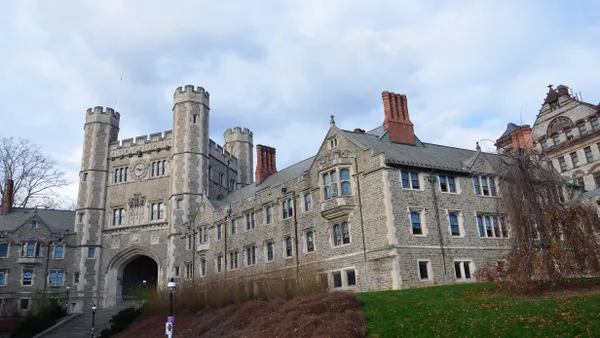Dive Brief:
-
Community colleges receive minimal resources while serving a significant number of students from economically disadvantaged backgrounds, according to a new report from The Century Foundation, a progressive think tank. While these institutions often focus on increasing access to higher education by offering financial aid, relatively few students earn certificates or degrees.
-
Investing in resources like full-time faculty, smaller class sizes, tutoring and intensive advising services, as well as proven programs like first-year experiences and learning communities are more likely to increase graduation rates, the report explains.
-
Current barriers to doing so include a lack of research on the true cost of a quality community college education, over-reliance on local funds and poor allocation of state funding.
Dive Insight:
Developing stronger partnerships between community colleges and local industry can help make higher education more relevant to the needs of student and employers. A recent report from the Urban Institute identifies a significant imbalance between the types of jobs available in the U.S. and the number of people who have the education levels required. Specifically, two-thirds of jobs in the U.S. require a high school diploma or less at entry level while a near-equivalent share of the population has more than a high school degree.
The Urban Institute report recommends postsecondary students note both the higher earning potential of jobs requiring a four-year college degree as well as the need to finance that education. It suggests high schools, colleges and local workforce development groups help students identify local employment opportunities and low-cost pathways to obtain the necessary education.
The Association of Community College Trustees (ACCT) in a recent report highlighted ways to strengthen higher education and industry partnerships. They include the creation of a cross-comparison of students' capabilities and existing employees' skills; an in-depth look into the skills needed to fulfill current job needs; and research into the alignment of academic and work-based learning programs with the needs of businesses and learners.
The ACCT report references the South Carolina Technical College System, which has partnered with local industry leaders in automotive, banking, digital advertising and healthcare to create apprenticeship and workforce training programs. Companies such as BMW and Michelin are involved with curriculum development to ensure that program graduates are prepared for immediate positions.
Large research and other four-year institutions are looking to see where they fit in the broader discussion of higher education's workforce imperative. Penn State University President Eric Baron said during a panel in September hosted by the Association of Public & Land-grant Universities that top colleges should "create visibility" around the work of their heavily funded programs to draw partners from the private sector.













